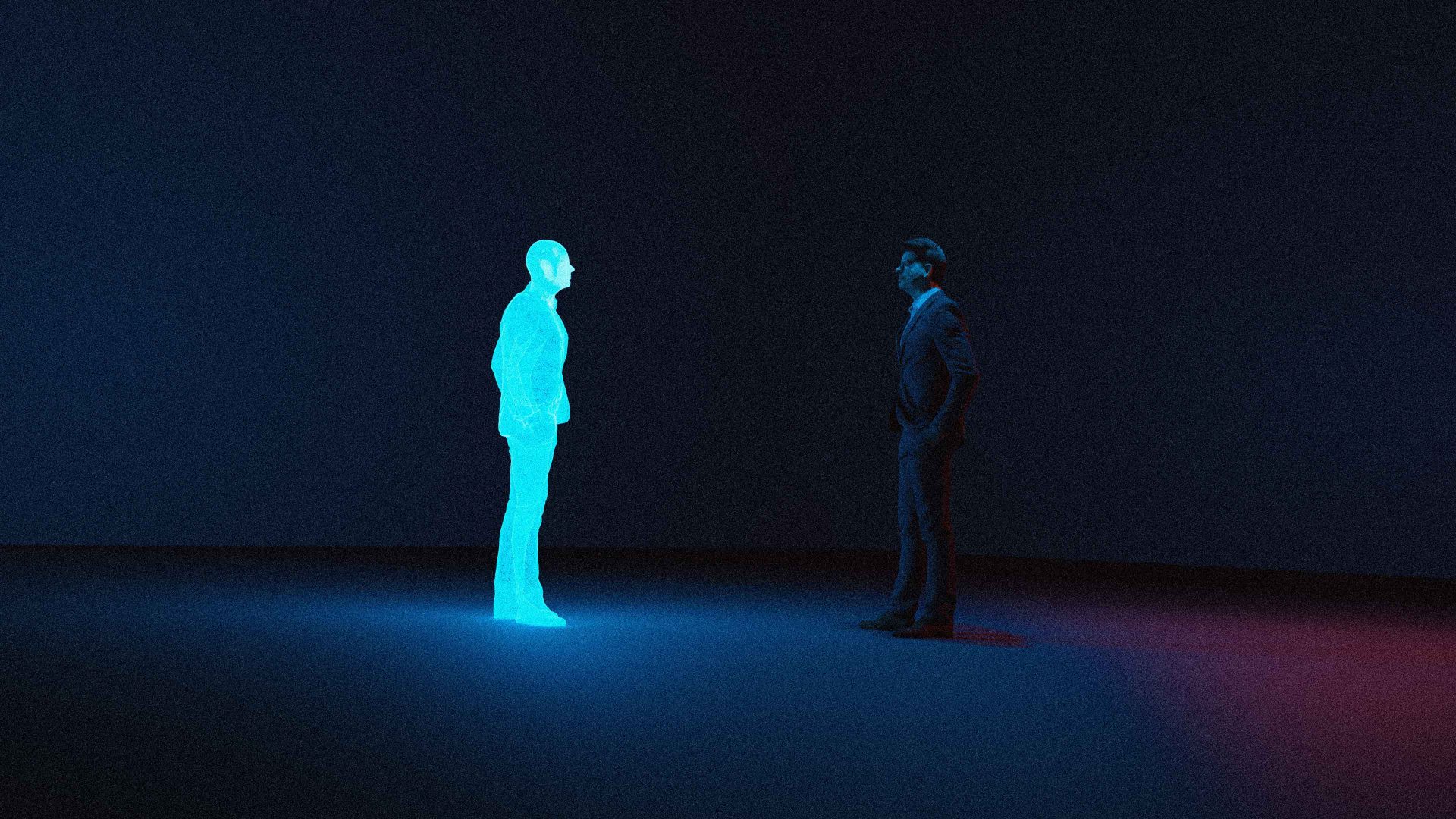Seventy-five years ago, Alan Turing published one of his most famous papers. Turing is celebrated among scientists and mathematicians for his 1936 paper on “computable numbers”, where he introduced the idea of a “universal computing machine”: the conceptual blueprint for today’s computers. But that’s heady stuff for those not trained in maths and logic. Turing’s 1950 paper in the journal Mind, on the other hand, can be read and enjoyed by anyone. Titled “Computing Machinery and Intelligence”, it asked the question that has only become more salient in the years since: can a machine think?
Turing’s answer was essentially: I don’t know, but I’ve got a better question. Rather than getting into empty semantic debates about what we mean by thinking, he asked: could we imagine a machine that responds in a way indistinguishable from humans, which, as he wryly put it, we regard by “polite convention” as thinking entities? To find an answer, Turing introduced what he called the Imitation Game – the title of the 2014 biopic starring Benedict Cumberbatch. Today we know it more commonly as the Turing Test.
Turing actually described a whole series of tests of this sort. But in the popular version today, we pose a series of questions to the subject undergoing the test (or maybe just converse with it) and see if we can reliably tell if that subject is human or machine. The idea famously featured (as the Voight-Kampff test) in the opening sequence of Ridley Scott’s Blade Runner (1982) to distinguish a human from an android. A version of the test is in effect conducted throughout Alex Garland’s 2014 movie Ex Machina.
In such ways the Turing Test has become a part of popular culture. The common view is that if a machine passes the Turing Test, some kind of significant threshold has been crossed. There are versions of the test that consider non-linguistic outputs too: can a computer make music or art that we can’t distinguish from the products of humans, say?
Suggested Reading


Reality was fun while it lasted
Yet a meeting at the Royal Society this month to celebrate the 75th anniversary of Turing’s paper drew a fairly unanimous judgment from the expert speakers: the Turing Test is pretty meaningless, and always was.
The problem is that Turing miscalibrated human behaviour. We are hardwired to project mind, intention and sentience into mindless things at the slightest provocation. At the meeting, veteran computer scientist Alan Kay attributed this to the “fast” and “slow” thinking identified by psychologist Daniel Kahneman. No matter how much the deliberative, slow mind insists the marionette is just blocks of wood, the instinctive gut response is to be moved by its gestures. For all that we marvel at how “lifelike” an interaction with ChatGPT is, the truth is that even one of the first, crude efforts to make what we now call a chatbot, called Eliza and created in 1966 by computer scientist Joseph Weizenbaum, was mistaken for a human by some of its users.
As that episode shows, we’d be wrong to suppose that being involved in creating these machines confers immunity against being taken in by them. On the contrary, the steady stream of claims from Silicon Valley CEOs and AI researchers that today’s Large Language Models (LLMs) are thinking like humans, or on the verge of artificial general intelligence (a concept AI ethicist Shannon Vallor roundly trashed at the meeting as also meaningless), or even sentient, shows that San Francisco has attracted some of the most gullible people around. Which should be no surprise really. Since its inception, AI has been disproportionately shaped by people with little understanding of the human psyche.
Turing himself, widely considered to have been on the autistic spectrum, is often portrayed that way: in The Imitation Game he was made into something of a humourless nerd. Not only does that misconception do him a grave disservice, but it helps to explain why we have got his 1950 paper wrong. Turing’s test has been turned into a sober benchmark of progress in AI, but in fact the paper is steeped in his playful spirit. He was having fun – which is why, unlike in his mathematical papers, this one is often inconsistent and illogical. “Turing was kidding quite a lot of the time and we need to be very cautious what we take from it”, warned English professor Sarah Dillon.
Cautious too about how we think about LLMs today. They are often stunningly good imitators: mirrors of ourselves, as Vallor has put it. But cognitive scientist and arch AI-sceptic Gary Marcus reminded the audience, “Imitation is not the essence of intelligence”. In that sense, we don’t have AI even today.




